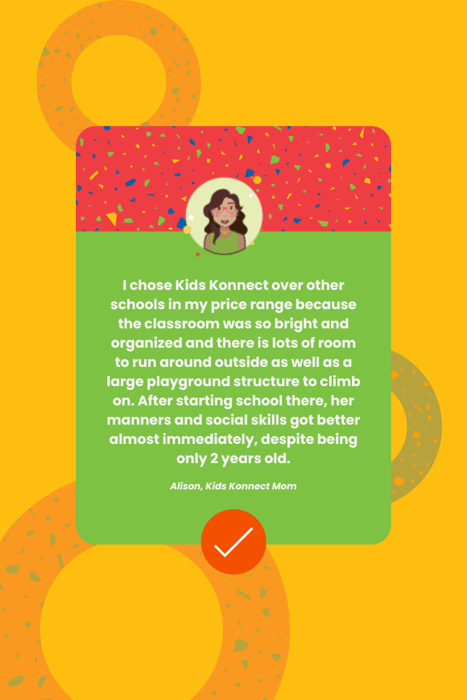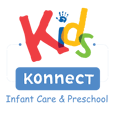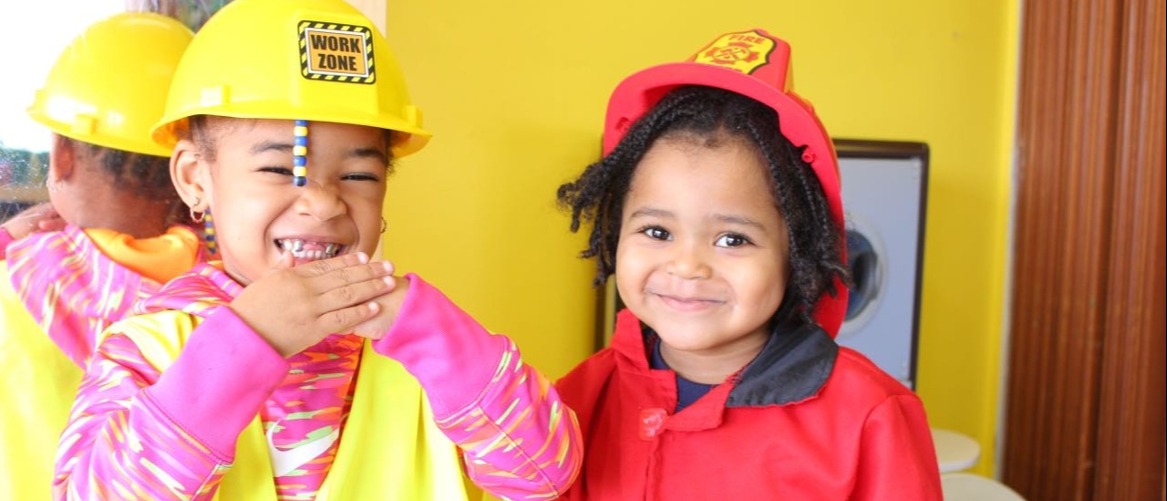Psychology Behind A Play-Based Curriculum
Kids Konnect is a big supporter of preschools having a play-based curriculum. We think it is a more compelling alternative to Montessori or Waldorf plans and enables children to be just that, children.
We already know there are proven results from a play-based curriculum such as increased independence, curiosity and social skills. However, you might be wondering about our reasoning for basing our curriculum around play.
It is all about psychology

Psychology studies position play as vital to a child’s development. You can read up on the importance of play here, and here, and here, and here…
Lots of different curriculums have underpinning psychology, so what makes a play-based curriculum any different? Unlike some methodologies that require strict rules and boundaries when teaching or partaking in activities, a play-based curriculum lets children work out their own solution to the problem with relative freedom.
What do we mean by “play”?
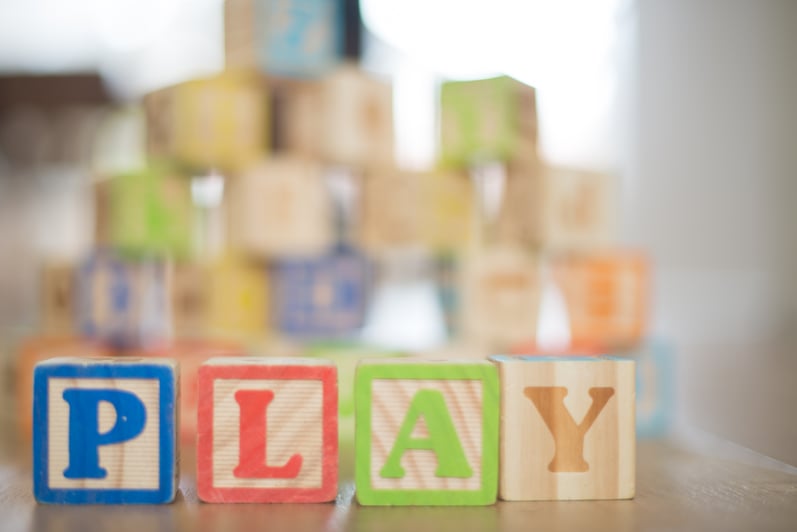
Kids Konnect defines play as open-ended and unfettered. It’s children learning and completing tasks how they want and making up their own solutions.
This doesn’t mean children at Kids Konnect are unsupervised. Our teachers guide our students and monitor them for behavioral reasons, and children must follow classroom rules, but they can complete the tasks any way they want to. We don’t give them a LEGO set and make them follow the instructions. We let them build whatever they want!
Over the years, we’ve found that taking a step back and guiding children has boosted their creativity and reduced their boredom. As psychologist Peter Grey says: “You can’t teach creativity, all you can do is let it blossom.”
Learning From History

Play is deep-rooted in our nature. All animals play: dogs, lions, ravens! Australian scientists have also noticed crocodiles surfing waves for fun.
All intelligent animals make ‘play’ a vital part of their development. And, anthropologists believe children throughout history were permitted to play whenever they pleased. In hunter-gatherer communities, play teaches children how to cooperate.
Learning with all ages
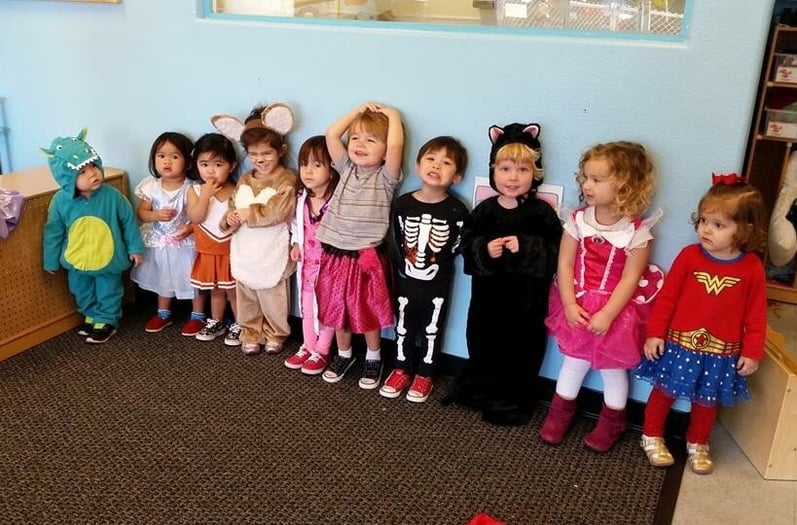
Kids Konnect sees everyday that our play-based curriculum helps our little ones communicate, cooperate and share. It’s not the only thing we still have in common with our hunter-gatherer ancestors.
Some of our preschools have mixed aged classrooms for ages 2-5.
This leads to younger children becoming more confident and developing more positive attitudes towards themselves and others. Younger children expand their capabilities to handle more complex tasks.
This happens because, in a mixed-aged environment, younger children watch older children complete difficult tasks and strive to emulate them. There is no competition with peers, they just want to complete the task out of their natural curiosity. Older children then learn leadership skills and how to collaborate with their younger peers.
Our adult lives don’t reflect a school’s rigid hierarchy. Our boss might be younger than us! So why would we have strict age boundaries in our schools?
Minimal Structures In Play-Based Learning

Studies prove that boundaries and overly strict rules lead to boredom and children hating preschool. Kids Konnect strive for our schools to be fun, welcoming places, so we have minimal structures in place.
How does this work in practice?
We give our students an activity, like sidewalk water painting, and explain the basic process (“squirt water on the floor to paint a shape”). We might give them some direction on how to draw a butterfly, but we encourage the children to unlock their creativity and draw whatever they want.
Examples of a play-based curriculum in action
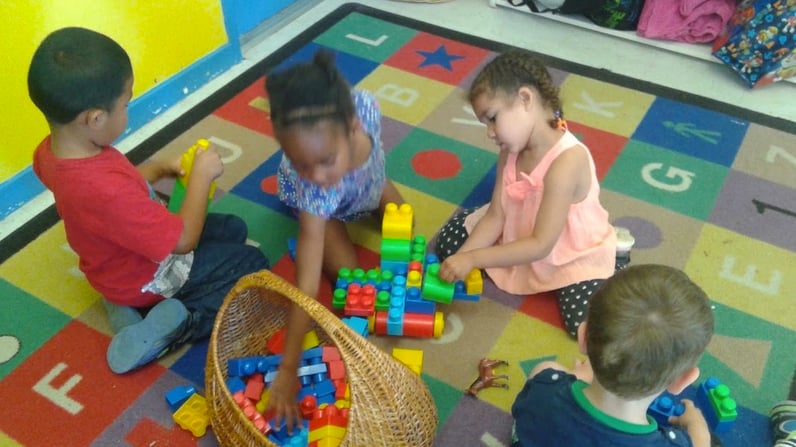
We have a lot of age-appropriate activities you can download when you subscribe to our dittos, or you can check our blog on a play-based curriculum.
Activities in the classroom include painting and letting your little one follow their own path. They can paint whatever they want! Or, with Kids Konnect’s focus on STEM subjects, children can build a tower out of giant Jenga bricks. They can engineer whatever tower they like and will quickly learn about gravity (and structural engineering!).
Great Examples
-
Build a tower to learn about gravity
-
Draw butterflies to learn about symmetry
-
Match letters to learn about the alphabet
-
Plant flowers to learn about plant lifecycles
There’s no right or wrong way to play!
Equipment wise, the jungle gym is a perfect example of a play-based activity. Children can use the gym in whatever way they choose. They can get from point A to point B as quickly as they want, climb up and slide down, or stage their own version of The Lion King.
We often hear stories of children coming home from preschool or school and complaining they were bored. They don’t want to go anymore. This is not a problem at Kids Konnect. Our students love coming to school – they actually want to learn!
